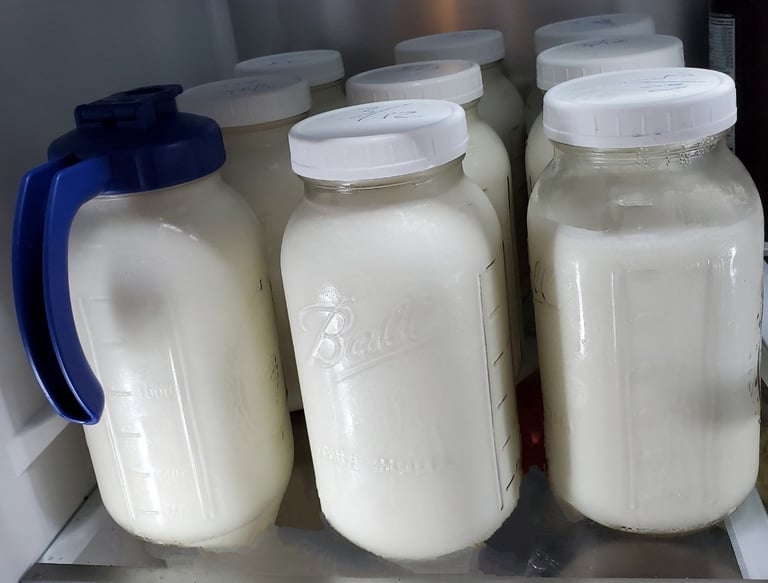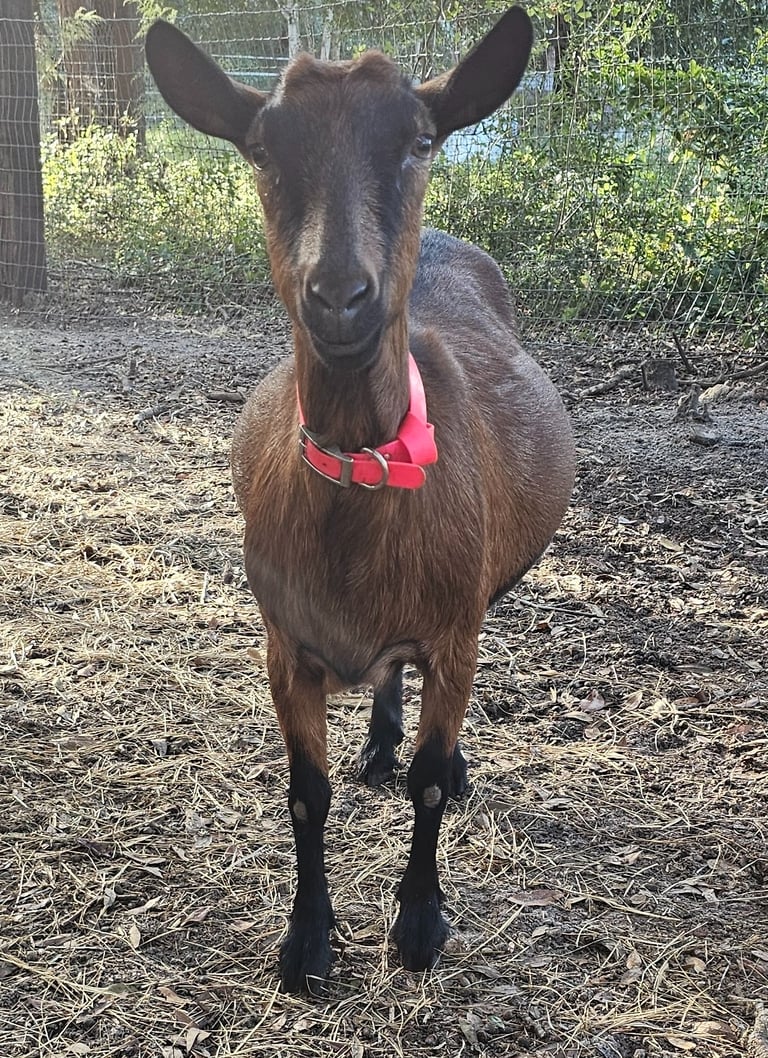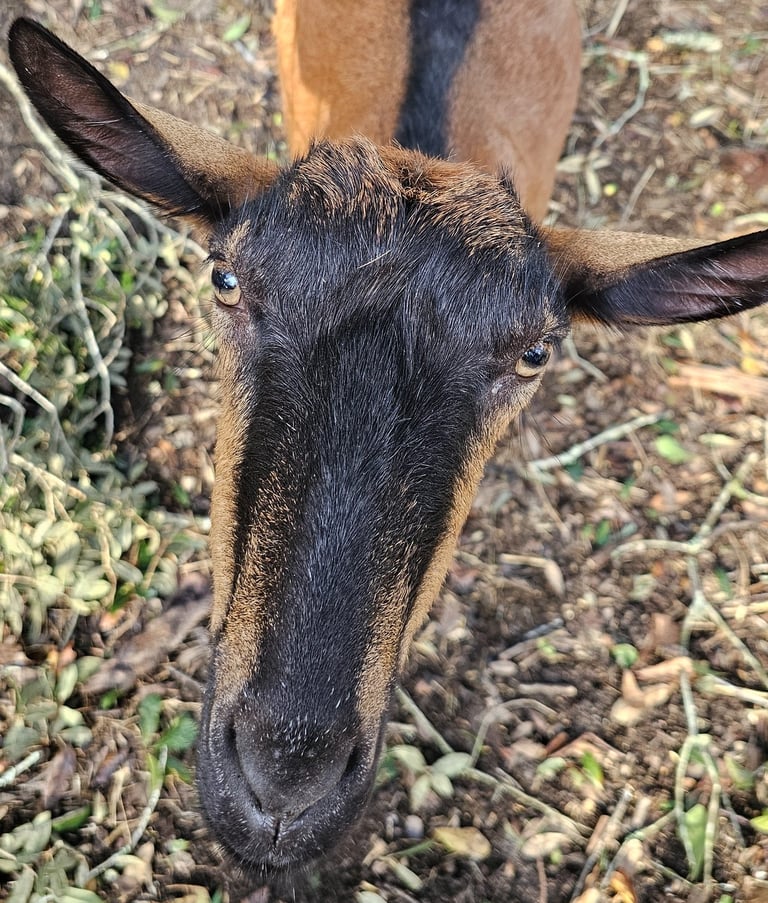Understanding Herdsharing
Learn how herdsharing allows legal access to raw milk.
Understanding Herdsharing Benefits
Herdsharing allows individuals to purchase a share of a herd. There is no law in the state of Georgia expressly prohibiting herdsharing allowing us to legally sell herdshares.
We retain legal ownership of all animals on the property. Since we only have 3 goats that will be in milk this year, we're limited in how many shares we can offer. We're expecting to get about a gallon a day from each of them as this has been our experience with them. To play it safe we will be offering about 25 shares for the duration of this milking season. The rest will go to feed the kids we keep this year and us. We're expecting kids in December with hopes the milk will be ready to be shared starting in January and ending November 1st 2025.
When you purchase a share, you're purchasing a small part of the herd we have as a one time fee. Then moving forward, you're paying board on this share monthly. We feed, care for, maintain and milk your share and you get to take home a half gallon of milk each week for the duration of the milking season. Everything will be in a contract.




What the one time fee and monthly board covers.
The one time fee locks you in for the season. It helps to cover yearly heard testing and monthly milk testing. It also helps to cover any surprises requiring a vet visit for the year.
The monthly boarding fee is just that, to help take care of housing the herd and all the daily work that goes into that. Buying and storing feed, shelter, fences, grooming, hoof trimming, checking for injuries, milking, and re-breeding so we can do it all again next year.
Why herdshare?
You get access to the delicious milk that your share produces. Some places offer milk products like yogurt and cheese as well, but we're not quite ready for that yet.
It helps supports us so we can continue doing what we do.


But is it safe?
Lets start with the herd health. Everyone is tested yearly for Q Fever, Johne's, CL, CAE, TB, and Brucellosis. On top of this, we keep a closed herd with good biosecurity which ensures it won't be introduced to our herd. Making the testing more of a formality. When we do purchase a new goat, it is from a clean tested herd and the goat is properly quarantined before being integrated.
The milk will also be tested for bacteria counts monthly. We'll be testing to ensure we're doing a good job in milking hygiene and that there's no harmful bacteria being passed on.
Our milking hygiene is very good. We will be hand milking our three this year which is actually easier to keep clean than using a machine. Udders and teats are cleaned with a clorhexidine solution meant for this before milking. Teats are dipped with an iodine solution to disinfect and prevent bacteria after. Buckets are stainless steel with a lid for walking to the house. Milk is immediately filtered into sanitized glass jars and milk is placed in the fridge to cool. buckets are then washed and sanitized.
The milk your share produces is yours to do with what you will. You are able to pasteurize it on your own if raw isn't your thing.
Is it legal?
In the state of Georgia, which is where we're located, the sale of raw milk is legal, but requires a license or permit which is harder for a small homestead like ours to obtain. There are no laws prohibiting herdsharing, making it legal by default. We do plan to follow the rules as though we were selling milk to make sure what we're providing is as safe and clean as it can be.

